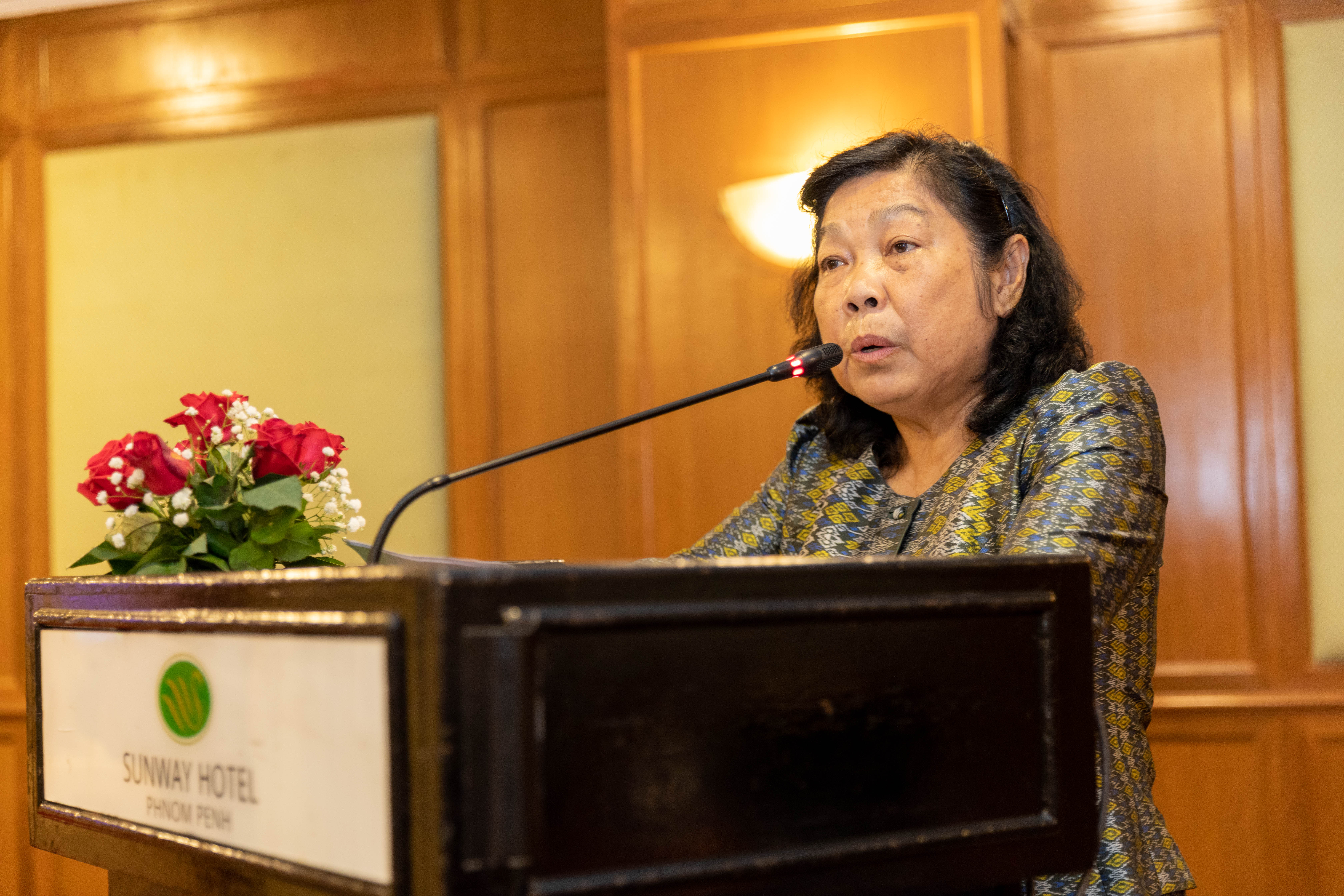
By Chakriya Khiev
Gender inequality in the agriculture sector is a key barrier for women farmers in Cambodia, and for economic productivity.
Although the agriculture sector is developing day by day, gender inequality remains a concern. Women have limited access to skills and knowledge of agricultural techniques compared to men, due to imbalanced workloads, time constraints, and long-distance travel.
Women are typically responsible for household duties of cooking, cleaning, and child-rearing, while also being expected to bring in an income. There is also a significant gender pay gap. In agriculture, 40% of waged workers are women, yet they are very rarely seen in management or professional roles (UN Cambodia, 2022)
Social stereotypes can preclude women from being invited to agriculture training or make them feel uncomfortable to share opinions or ask questions. Financial and market accessibility are also major challenges for women in the sector.
Gender equality is a key priority for Australia and CAPRED. In fact, gender equality, social inclusion and disability (GEDSI) is woven into all our program activities.
It is well documented that gender equality and inclusion boosts the economic growth, productivity and financial stability of a whole country. It also improves incomes and livelihoods, which has a whole raft of social and economic benefits.
The RGC understands this and is working towards improved gender equality across all its ministries. The Ministry of Agriculture, Forestry and Fisheries (MAFF) has developed the Gender Mainstreaming Policy and Strategic Framework in Agriculture Sector (GMPSFAS) 2022-2026.
At the end of November 2022, CAPRED and MAFF organised a GMPSFAS coordination workshop.
It was attended by H.E Hor Malin, MAFF Secretary of State, Di Kilsby, CAPRED’s GEDSI Lead, members of MAFF’s Gender and Children Working Group (GCWG), and local and international development partners.
“The contribution of women in Cambodia development is enormous,” said Di Kilsby. “This workshop gives us the opportunity to share, to learn, to reflect and to coordinate, so we can work together and take action on gender mainstreaming.”
GMPSFAS 2022-2026 plays a vital role in agriculture development orientation, especially in strategic planning and direction for its implementation. It aims to promote gender equality in the agriculture sector, bringing more recognition to women and fairer benefits from their work and participation.
“The agriculture sector has positively changed compared to the last 10 years, in terms of technicality, productivity and markets, “said H.E Hor Malin. “The majority of farmers are now using agriculture mechanisations instead of human and animal labour, which help to accelerate productivity. Not only do they help to solve the labour shortage issue but also help reduce women’s burden.”